Packed with provocative information about the social and political habits of twentieth-century Americans.
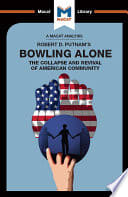
Average Rating
Informations
About the author
Robert D. Putnam
Author
Robert David Putnam is an American political scientist specializing in comparative politics. He is the Peter and Isabel Malkin Professor of Public Policy at the Harvard University John F. Kennedy School of Government.
Bowling Alone
by Robert D. Putnam
Books Like Bowling Alone
If you're looking for books similar to Bowling Alone, here are some recommendations based on themes, tone, and narrative style.
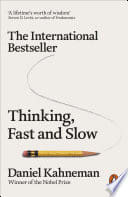
Thinking, Fast and Slow
Daniel Kahneman
Explores human decision-making processes and social psychology. Investigates how individual and collective thinking patterns influence behavior. Provides insights into cognitive mechanisms that shape social interactions. Examines the psychological underpinnings of community dynamics. Offers a complementary perspective to Putnam's social analysis.
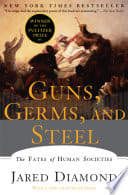
Guns, Germs, and Steel
Jared Diamond
Examines how societal structures and collective capabilities shape human history. Explores the role of community development in technological and cultural advancement. Provides a broad perspective on how societies evolve and interact. Offers deep insights into social organization and collective human potential. Complements Putnam's analysis of social capital.
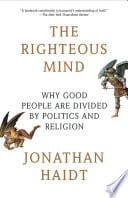
The Righteous Mind
Jonathan Haidt
Explores the psychological foundations of moral reasoning and social behavior. Investigates how moral intuitions shape community dynamics and political interactions. Provides deep insights into the social and psychological roots of human cooperation. Examines the complex mechanisms of group identity and collective thinking. Resonates with Putnam's exploration of social connections.
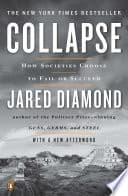
Collapse: How Societies Choose to Fail or Succeed
Jared Diamond
Explores how social structures and community dynamics impact societal survival. Examines historical and contemporary societies through a lens of collective decision-making and social cohesion. Provides deep insights into how communities function, thrive, or decline. Offers a comprehensive analysis of social interactions and their long-term consequences. Complements Putnam's exploration of social capital and community engagement.
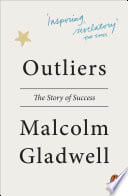
Outliers
Malcolm Gladwell
Investigates the social and cultural factors that contribute to individual success. Explores how community, opportunity, and collective support shape achievement. Provides insights into the role of social networks in personal development. Examines the broader context of individual accomplishments. Complements Putnam's analysis of social capital.
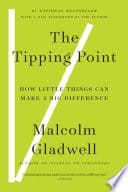
The Tipping Point
Malcolm Gladwell
Explores how social trends and behaviors spread through communities. Analyzes the factors that cause ideas and movements to suddenly become widespread. Investigates the role of social connections in driving cultural change. Examines how small groups and individuals can create significant social transformations. Provides insights similar to Putnam's work.
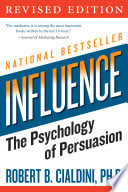
Influence
Robert Cialdini
Investigates the psychological mechanisms of social persuasion and behavior. Explores how social dynamics shape individual decision-making and group interactions. Provides deep insights into the power of social influence. Examines the complex mechanisms of community and interpersonal relationships. Complements Putnam's analysis of social patterns.

The Tipping Point
Malcolm Gladwell
Investigates how social trends and behaviors spread through communities. Analyzes the factors that cause ideas and movements to suddenly become widespread. Explores the role of social connections in driving cultural change. Examines how small groups and individuals can create significant social transformations. Provides insights into social networks similar to Putnam's work.
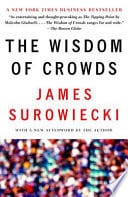
The Wisdom of Crowds
James Surowiecki
Explores how collective intelligence emerges through social interactions. Examines the power of group decision-making and community dynamics. Provides insights into how diverse perspectives contribute to problem-solving. Investigates the mechanisms of social collaboration and knowledge sharing. Aligns with Putnam's interest in social connectivity.
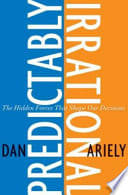
Predictably Irrational
Dan Ariely
Investigates the psychological mechanisms behind human decision-making. Explores how social contexts and cognitive biases influence behavior. Provides insights into the often counterintuitive nature of human choices. Examines the complex interactions between individual psychology and social dynamics. Complements Putnam's analysis of social patterns.
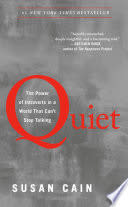
Quiet
Susan Cain
Explores the role of personality and social interaction in community dynamics. Investigates how individual differences shape social experiences and collective behavior. Provides insights into the complex nature of human social interactions. Examines the psychological mechanisms of community engagement. Resonates with Putnam's exploration of social connections.
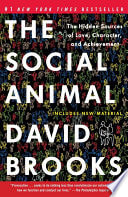
The Social Animal
David Brooks
Delves into the psychological and social factors that shape human behavior. Explores how individual experiences are influenced by social context and relationships. Provides a nuanced understanding of human social interactions. Examines the complex dynamics of community and personal development. Resonates with Putnam's exploration of social connections.
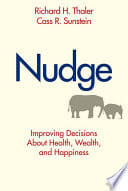
Nudge
Richard Thaler
Investigates how social structures and choice architecture influence behavior. Explores the subtle ways communities and institutions shape individual decisions. Provides insights into social psychology and collective behavior. Examines the complex interactions between individual choice and social context. Complements Putnam's analysis of social dynamics.
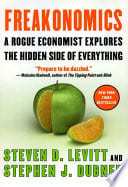
Freakonomics
Steven D. Levitt
Investigates unexpected connections between social phenomena and economic behavior. Explores how hidden factors shape community dynamics and individual choices. Provides unconventional insights into social patterns and human behavior. Examines the complex interactions between economics and social structures. Complements Putnam's analytical approach.
No account connected — sign in to comment.
